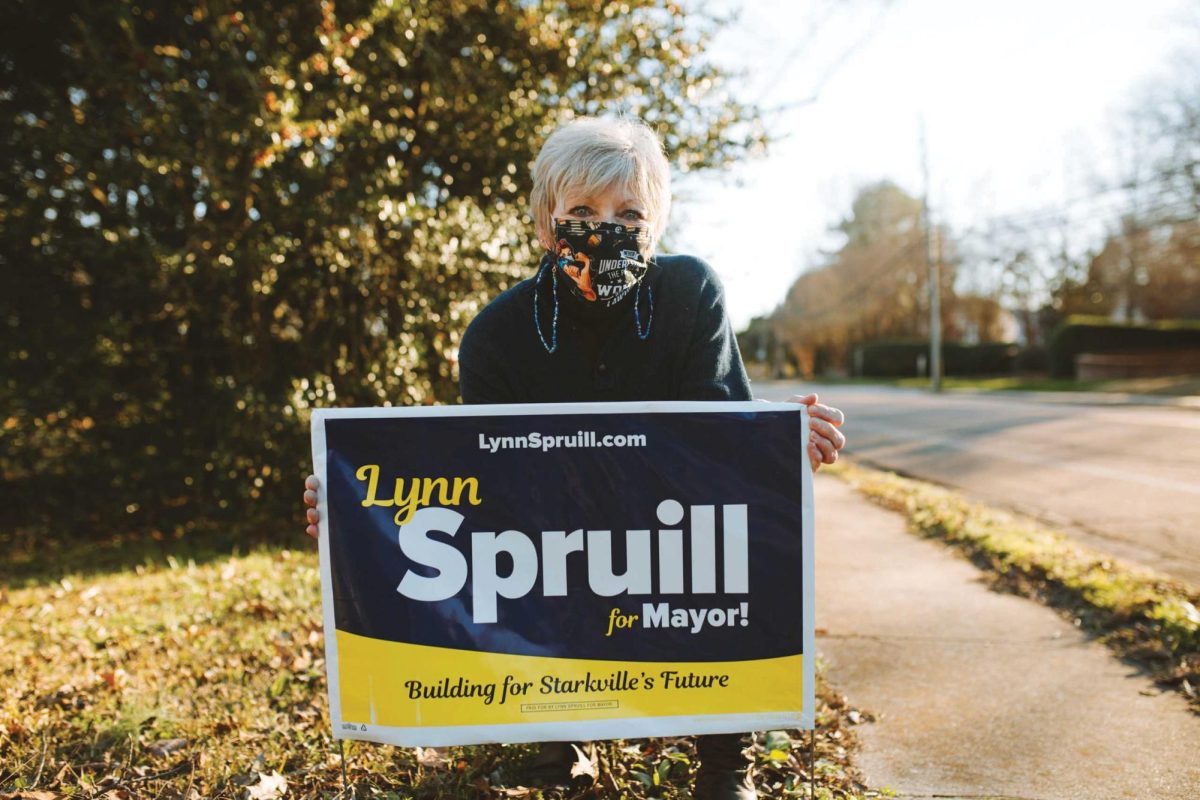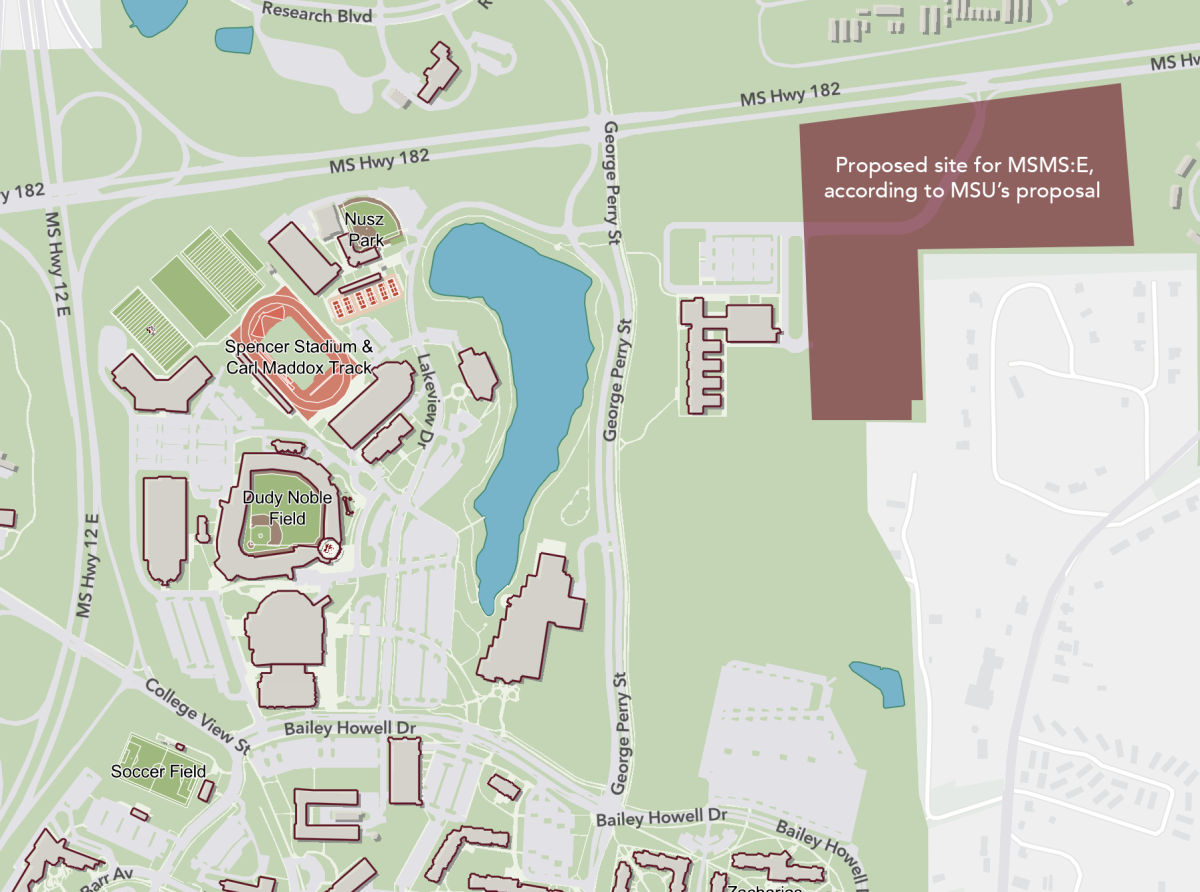The week of April 8 saw the main court proceedings of the ongoing contention of ballots in the previous Democratic run-off primary for the position of Starkville mayor.
Johnny Moore, represented by attorney William Starks, is contesting eight affidavit ballots and one absentee ballot which were not counted in the previous vote.
Mayor Lynn Spruill’s team, consisting of Jim Mozingo and Lydia Quarles, is contesting one absentee ballot. With Spruill winning 1,872 to 1,866 votes, the 10 contested ballots could lead to new action taken to rectify the results of the election, whether it be a new election or a new decided winner.
Affidavits and absentee ballots are special types of ballots which are filled in specific voting scenarios. Affidavits are ballots cast when a voter is not on the voter list of their given polling location, therefore, their information is not provided for them. The voter fills in the requested information, and this information must be verified, according to legal requirements.
Absentee ballots, on the other hand, are filled when a voter is unable to visit their specified voting location for extraneous and unalterable reasons. They are mailed in envelopes required to be signed across the flap by the voter, to prove the ballot was not tampered with after mailing.
Moore’s team believes their contested ballots were unjustly considered void, as Starks explains. One affidavit was miscounted for the address not being a residential address, which Starks found to be untrue.
Another was miscounted for the address being written as Highway 182 West, rather than Martin Luther King Drive. The presiding judge over the case, First District Circuit Judge Barry Ford, has accepted the latter mentioned ballot as wrongly disqualified, for the provided street is synonymous with Martin Luther King Drive.
Starks said Moore’s team simply wants every voting voice to count and not be disqualified for asinine reasons.
“I grew up in Starkville, and I knew a good number of the names that were on the ballots,” Starks said. “Some of them were poll workers. Some of them were poll managers at Wards. Some of them were heavily involved in elections and voted by absentee for various reasons, and we just felt like, to the extent possible, we want every vote that was a legal vote to count.”
Mozingo argues some of the discrepancies in the contested ballots simply do not allow them to be counted.
“There’s no argument of wrong-doing here. It’s just that different people disagree about whether certain votes ought to be counted and whether or not people did everything they were supposed to do for particular kinds of ballots,” Mozingo said. “In that sense, it’s an issue.”
Mozingo explained this hearing is based more on case law than statute law, meaning the proceeding is decided more on previous legal rulings than any law on the books. Therefore, this case is murkier than something dictated by clear and precise legal definition.
Pete Perry, a polling and elections expert witness called to the stand by Starks, testified several of the contested ballots would have been accepted if he was processing them. Additionally, Perry said Spruill should have won by three votes by his examination, rather than the certified six.
When cross-examined by Mozingo, Perry also testified 52 absentee ballots presented by Spruill’s team had several deficiencies, including a lack of the voter’s signature across the envelope’s flap.
Starks was surprised by the Spruill team’s presentation of the 52 ballots.
“All the way up until trial, they had denied that there was any problems with those ballots, and at trial, they came in and said, ‘Well, we want to amend our answer and say that yeahm there are problems with those ballots,’” Starks said. “That was a surprise and, I guess, a change in strategy on their part.”
However, Mozingo believes Sparks’s surprise is somewhat hypocritical.
“You know, as the case went along, they were continually pushing that issue,” Mozingo said. “I think it’s disingenuous for the Moore campaign to suggest, ‘Oh, they couldn’t believe we wanted to suggest this,’ when, until they actually sat down and quit putting on evidence, they had been doing nothing but pressing about these 52 absentee ballots.”
Mozingo said the Spruill team put up the ballots because they agree the ballots were unfit to count, and they were going to both candidates.
Both attorneys agreed the proceedings were otherwise straightforward.
Spruill herself is patient for the ruling, which should come within the next month.
“I am just waiting like everyone else to allow the process to go forward and continue to do the things that I think are necessary for the best interest of the city, and so, I will keep acting in that role until I’m told otherwise,” Spruill said.
Moore was contacted, but he did not comment on the situation.
Starkville mayoral race questioned after ballot irregularities
About the Contributor

Dylan Bufkin, Former Editor-in-Chief
Dylan Bufkin served as the Editor-in-Chief of The Reflector from 2020 to 2021.
He also served as the Opinion Editor from 2019 to 2020.
0
Donate to The Reflector
Your donation will support the student journalists of Mississippi State University. Your contribution will allow us to purchase equipment and cover our annual website hosting costs.
More to Discover










